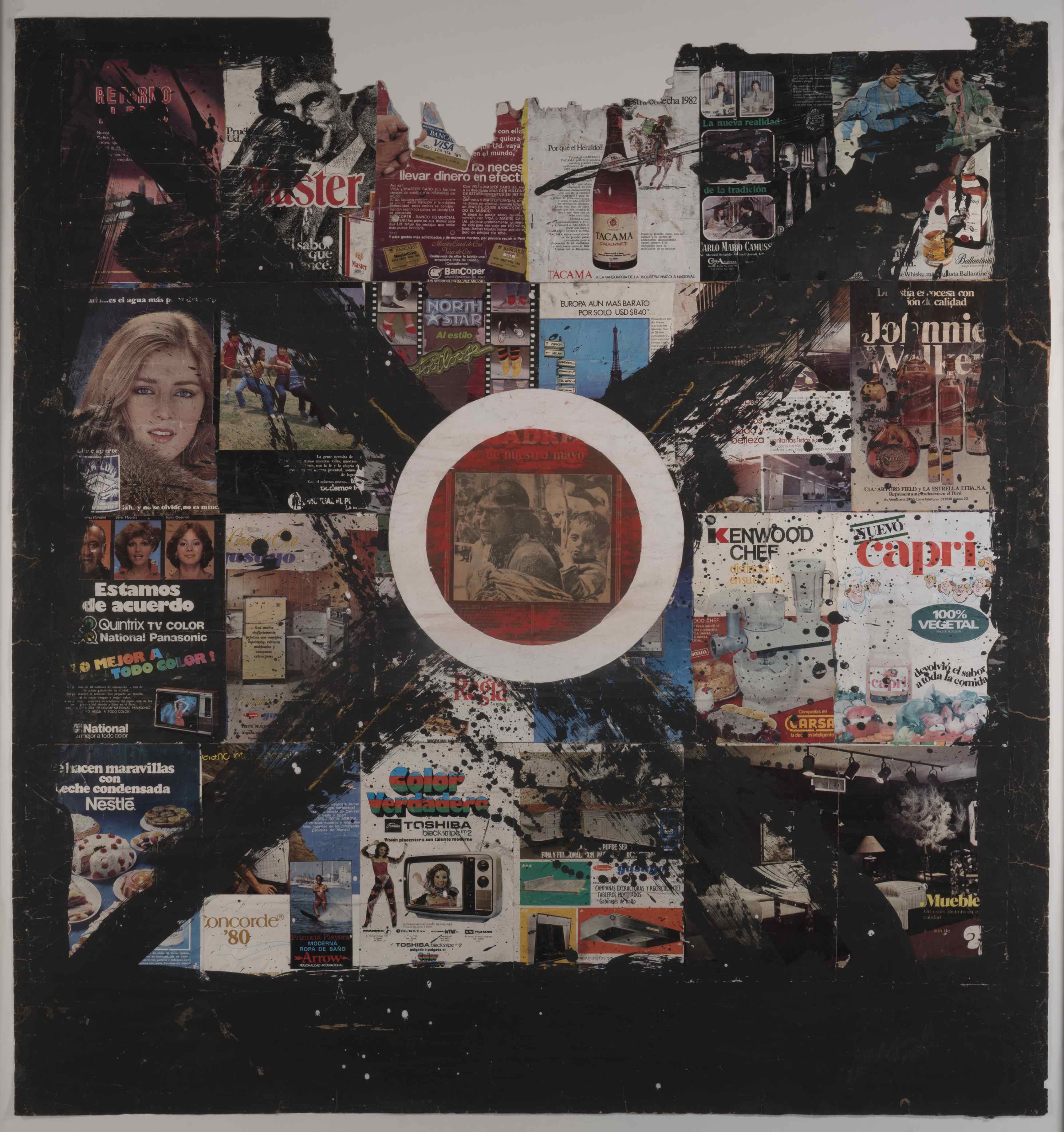A kaleidoscopic look at the history of Latin America
- Text by Miss Rosen
- Photography by The Photographers Gallery

“I am not a liberator,” said Ernesto “Che” Guevara in 1958, just one year before the Cuban Revolution transformed the landscape of Latin America. “Liberators do not exist. It exists when people liberate themselves.”
This historic movement for independence from western imperialism marks the starting point of the new exhibition Urban Impulses: Latin American Photography from 1959 to 2017. Curated by María Wills Londoño and Alexis Fabry, the show features more than 200 works by over 70 artists; including masters of the medium Alberto Korda, Graciela Iturbide, Sergio Larrain, as well as lesser-known artists such as Enrique Zamudio, Beatriz Jaramillo, and Yolanda Andrade.
“The purpose of the show is to bring a counterpoint to Latin American photography beyond gazes that have an exoticising point of view,” says Londoño. “We want to introduce new perspectives focusing on the chaos and crisis of utopian models of modernity.”
Organised into two themes, Shouts and Pop-ular, the exhibition explores the role of the city as a political and cultural force – a space for artists to literally take to the streets in order to create and share their work. Recognising the particularity of individual countries, the curators set forth to showcase these distinctions while simultaneously highlighting the commonalities of a once-colonised people manifesting their own destiny — and the struggles they face from within.

Carlos Somonte. Untitled (Aquileo Valtierra González), Prisoners series, Mexico, 1997

Eduardo Longoni. The Battle of the Plaza de Mayo, Buenos Aires, 20 December 2001
“We were interested in the way photography developed in a place where there is a lot of scarcity in mediums, no photo academy or universities where you can become a photographer,” Londoño says.
Fabry continues: “Many images in the show are printed mediums that don’t come from the fine art world, often due to lack of means. Many use Xerox printing, the cheapest and easiest way of having a print circulate and become popular.”
This is evident in the work of Chilean artist Enrique Zamudio, who created a monument to the disappeared by crafting a ceramic wall covered with portraits taken from identity cards kept by the families. Over the years, the images have been exposed to the sun and dust, fading away, poignantly echoing the fate of the people themselves.
The work of Peruvian artist Nicolás Torres offers a striking counterpoint, a testament to playful and happy attitudes towards life. A low-level construction worker, Torres began making portraits of young people attending chicha parties around Lima — a style of music that mixes folkloric Andrean music with rock and roll and electronic music. After the parties, Torres would hang the pictures on the wall of his home and revellers would purchase the ones they liked. The portraits they left behind were considered of lesser value, but this deeply appealed to Fabry and Londoño, who notes that choosing to feature works by lesser-known artists alongside the greats has had a profound effect.
“Suddenly there are discoveries all over the place and people are touched,” she says. “They have been living a little sadness of not having a strong public locally, so having their work seen here has been very important for them.”

Facundo de Zuviria, Evita, ca. 1987

Pablo Ortiz Monasterio. If You Shoot, I Shoot, Mexico City, 1989

Eniac Martínez. Fifteenth Birthday Party in Ciudad Neza, Mexico City, Mixtecos Norte/Sur series, 1989

Herbert Rodríguez. Equis, 1985

Alejandro Hoppe. Funeral of Rodrigo Rojas de Negri, Santiago, 1986

Alberto Korda. The Quixote of the street lamp, Cuba, 1959

Álvaro Hoppe. Calle Alameda, Santiago, 1983

Ataúlfo Pérez Aznar. Disappeared, Calle 6 between 46 and 47, La Plata, 1983
Urban Impulses: Latin American Photography from 1959 to 2017 is on view at The Photographers’ Gallery in London until October 6, 2019.
Follow Miss Rosen on Twitter.
Enjoyed this article? Like Huck on Facebook or follow us on Twitter.
Latest on Huck

Analogue Appreciation: lullahush
Ithaca — In an ever more digital, online world, we ask our favourite artists about their most cherished pieces of physical culture. Today, it’s Irish retro-futurist lullahush.
Written by: lullahush

Spyros Rennt captures connection and tenderness among Berlin’s queer youth
Intertwined — In the Greek photographer’s fourth photobook, he lays out spreads of togetherness among his friends and the German capital’s LGBTQ+ party scene.
Written by: Isaac Muk

The rebellious roots of Cornwall’s surfing scene
100 years of waveriding — Despite past attempts to ban the sport from beaches, surfers have remained as integral, conservationist presences in England’s southwestern tip. A new exhibition in Falmouth traces its long history in the area.
Written by: Ella Glossop

Plestia Alaqad: “Journalists should focus on humanising people”
Huck’s April interview — Having become one of the most crucial and followed voices from inside Gaza in the aftermath of October 7, the award-winning author and journalist is releasing a new memoir, ‘The Eyes of Gaza’, collating diary entries made over the past 18 months. We caught up with her to hear more about it.
Written by: Isaac Muk

The instrument makers taking DIY music to a whole new level
What does it take to construct a modular synth? How do you turn a block of wood into a double bass? Here, four craftspeople explain why they chose to rip up the rulebooks and build their own music-making machines.
Written by: Daniel Dylan Wray

Southbank Centre reveals new series dedicated to East and Southeast Asian arts
ESEA Encounters — Taking place between 17-20 July, there will be a live concert from YMO’s Haruomi Hosono, as well as discussions around Asian literature, stage productions, and a pop-up Japanese Yokimono summer market.
Written by: Zahra Onsori